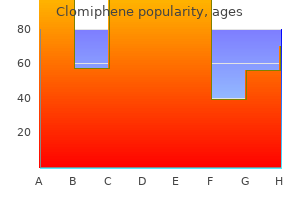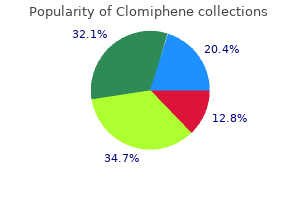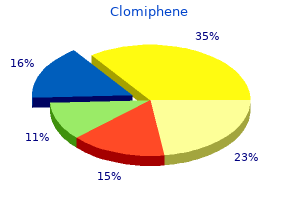"Order cheapest clomiphene and clomiphene, womens health fitness".
J. Irmak, M.B. B.CH., M.B.B.Ch., Ph.D.
Clinical Director, University of Nebraska College of Medicine
The number of violent crimes today is roughly twice what it was in 1960 per 100,000 persons. And, of course, the financial cost and social cost of incarceration should not be ignored in evaluating our present position. Significantly, especially for this Commission, it remains the case that African Americans are, on average, more likely to be victimized by crime than others. For example, while African Americans are only about 13%1002 of the population, they are about 43% of the murder victims1003 and 22. As Heather Mac Donald stated in her written testimony to the Commission: Go to a police community meeting in Harlem, the South Bronx, or Central Brooklyn, and you will invariably hear some variant on the following requests: "We want the dealers off the corner. My strong suspicion is that requests for more police protection-from people of all races-are made at community meetings with police in Chicago, Oklahoma City, and Santa Ana and indeed in every city. Levitt, Understanding Why Crime Fell in the 1990s: Four Factors that Explain the Decline and Six that Do Not, 18 J. Not many of the dwindling number of reporters left on the local beat can spend their time at community meetings with police. Meanwhile more and more of our news comes from organizations and foundations that function at the national rather than the grassroots level. It therefore gets filtered, sometimes consciously but more often unconsciously, to suit the goals of those organizations and foundations and the individuals who run them. Activism guided by national organizations and foundations is different from grassroots activism. Inside-the-beltway civil rights organizations, for example, tend to be staffed by lawyers and other professionals who have never lived in a highcrime neighborhood. Issues like voting law and affirmative action at the college and university level tend to be of great importance to them. They themselves have benefited from a college education, and they see that experience as crucial to their own success. For lobbyists, getting to right people elected to office is generally a prime concern. It also invites the question, "Why are African Americans victimized at such high rates A significant number of those who read this report will fall into that basic demographic. One of them is likely the understandable fear that when this fact is brought up, it will cause listeners to be less sympathetic with all African Americans. But one can sympathize with the reluctance of civil rights organizations to dwell on the negative. In general, the individuals who set priorities for civil rights organizations are fairly well off. Another part is that African Americans are more likely to be low-income or unemployed. We live in a complex world, but it is ordinarily better to face those complexities head on rather than ignore them. It is worth noting that African Americans were not the first ethnic group to come along with higher than average rates of social pathologies (nor are they the only such group now). There is no reason that African On the other hand, I suspect few things are as infuriating for an African-American professional as being pulled over by a police officer for no apparent reason. This could make it easier for them to identify with what is no doubt a very real experience: Law abiding African Americans, especially young men, essentially have a "tax" levied upon them because of their skin color. Irish immigrants and the first few generations of Irish Americans had a difficult time. Direct comparisons between the histories of African Americans and of Irish Americans are not possible. But by all accounts, nineteenth-century Ireland-from which Irish immigrants to this country fled by the boatloads-was a remarkably dismal place even before the Great Potato Famine.
See Wesley Lowery, Kimbriell Kelly, Ted Mellnik, and Steven Rich, "Where Killings Go Unsolved," Washington Post, June 6, 2018. Membership on the Use of Force Review Board includes police officers, supervisors, and civilian members of the community. For example, the force review board could only focus its review on the moment an officer discharged his or her firearm. The scope of review was greatly expanded to include not just the decision making at the moment the officers employed deadly force, but also the tactics, communications, and supervision of all personnel involved. These included: Administrative approval Tactics/decision making Policy violation not directly related to use of force Policy/training failure Administrative disapproval924 163 o o o o o this change has resulted in more accountability to the public and the police. Consequently, the board has recommended significant remedial action, including training, discipline, one demotion, and the termination of two officers. Many, including this Commission, endorse the policy solution of requiring officers to use body-worn cameras so that there is less ability to fabricate what actually happened in an encounter. Simply purchasing the equipment is no guarantee officers or civilians will behave differently or that accountability will 924 925 Ibid. For example, in many places officers are permitted to view the footage before recounting their version of the incident. The gives them to opportunity to tailor their account so it is less likely to be contradicted. This is antithetical to the accountability purpose for which cameras were intended. Otherwise they have simply spent taxpayer money but not increased safety or community trust. They claim that any disparities in rates of use of force can be attributed to police presence in neighborhoods with high crime rates, which tend to be communities of color. I disagree that we should dismiss police use of force as not being a civil rights issue. More importantly, if police are not given the proper tools to understand and interact with different subcultures their actions will be skewed toward certain outcomes. The pervasive history of racism in our society and the present continuation of policies and attitudes formed in society mean that every person retains unconscious biases. These biases influence how every one of us, including sworn officers, view behaviors and what judgments we make about what is appropriate. This is borne out by study after study that shows people of color are treated differently by law enforcement-stopped more frequently but less likely to be carrying contraband when searched, and more likely to be victims of violence at the hand of police. Epp, and Kelsey Shoub, Suspect Citizens: What 20 Million Traffic Stops Tell Us About Policing and Race (Cambridge: Cambridge University Press, 2018)); Sharon LaFraniere and Andrew W. Even when police are in some areas more often, they can and should be trained to operate so that force is used as a last resort. Officers and supervisors should be held accountable when they violate that standard. Of particular note, in some cities and states there is a required "cooling off period" after a use of force incident before an officer can be questioned. Conveniently, it also allows officers to consult with other witnesses, speak to lawyers, and in some places, view video footage before reporting their version of the incident. Current understandings of brain science do not support delaying interviews in this manner. In no other instance would officers wait to question witnesses, persons of interest and perpetrators after a shooting. Similarly, provisions allow officers to review all the evidence against them before being interviewed and include very short limitations periods for when officers can be disciplined for policy violations of any sort, sometimes as short as 100 days or less. This allows bad-acting or ill-trained officers acting improperly and against the best interests of the rest of the department to continue without correction. These limits to police accountability should be eliminated as they do not serve the best interests of the public, the department, or the community they serve. This report and many other accounts make plain the failure of the federal government, and well as local and state governments, to accurately track, categorize, and publicize police uses of force.

There is a troubling and false narrative pushed by some conservatives that excessive policing and the resulting excessive use of force is somehow justified due to "black crime," "black-on-black crime," or black neighborhoods being inherently more violent than other neighborhoods. Most importantly, "the "black-on-black" crime narrative as an explanation for police excessive use of force disregards the structural and historical issues that formed these neighborhoods, as well as the social and economic factors that currently sustain them. Legitimacy is the extent to which the community believes that police actions are `appropriate, proper, and just. As a result, legitimacy is important not only for its own sake, but also because success in achieving key goals (such as reducing crime rates) can depend largely on whether the community supports the police. Restoring the legitimacy of police in the eyes of communities is also important to the ability of law enforcement to recruit the best and the brightest to join their ranks to serve their communities. As we found in our investigation, there is a growing consensus that modern police should not envision themselves as "warriors" who transiently insert themselves into neighborhoods to do what needs to be done "at all costs" then depart, but as "guardians" who stay and serve the people. It is crucial that police are not simply interceding to solve problems "for the community," but are working together "with the community" to reach collective goals. Black police officers and their associations have historically advocated for change in police departments to end racial bias in their profession. Some of the sharpest differences between the police and the public emerge over views on deaths of blacks during encounters with police in recent years and the protests that many of those incidents ignited. For example, 67% of the police but only 39% of the public describe these deadly encounters as isolated incidents rather than signs of a broader problem between blacks and police. When this overall finding is analyzed by race, an equally striking result snaps into focus: About sevenin-ten white officers (72%) but fewer than half of all black officers see these encounters as isolated incidents. By contrast, majorities of black officers (57%) as well as the public overall (60%) say the incidents are signs of a broader problem between police and the black community. Unfortunately, as our report lays out, some police unions are resisting the implementation of crucial reforms despite clear indications that the situation as-is cannot stand. That can be done without pushing for excessive protections that obstruct accountability, and sometimes justice for the civilians unlawfully harmed by the police, and in the long run undermine the legitimacy police need in the communities they serve to successfully to prevent and solve crimes. Police unions who believe that the problem of excessive use of force against marginalized groups is limited to a few "bad apples" and do not want to be unfairly "painted with the same broad strokes" as those who commit misconduct need to spearhead efforts to weed out those outliers and make it easier to identify recurring perpetrators and dismiss them from service. In order to rehabilitate police-community relations and re-instill faith in officers as community guardians, it is crucial that unions support programs geared towards eliminating racial prejudices, as well as educating officers on de-escalating hostile situations before using force as an absolute last-resort measure. Police and their unions have a legitimate concern when reforms are developed without their input. In my work over the years on racial profiling, I have observed that there is often a gap between police chiefs and the police on the beat. Community stakeholders need to understand that for real change to happen, everyone needs to be at the table having candid and hard conversations. I think you heard Sean Smoot talk early today about the union needs to be at the table. They want safe neighborhoods and neighborhoods where people can see their kids playing out in the street or they can walk to the grocery store without worrying about being shot or harassed by police, and so as they start to learn that from each Andrew Cohen, "How Bad Apples Spoil the Whole Bunch," Marshall Project, Sept. In fact, as we heard at our hearing,960 and as many chiefs of police who seek to modernize their approach to policing, have said, the Department of Justice has an important role to play. Then-Commissioner of the Philadelphia Police Department, Charles Ramsey (also former D. Chief of Police): the process of having a consent decree can actually be a benefit to your department. You can leverage the Justice Department to get some things that you desperately need. When I was chief at the Metropolitan Police Department in Washington, we would not have been able to make the changes we made without the consent decree. We would have encountered pushback from the union, and we would not have obtained the funding needed to develop an early intervention system and underlying technology infrastructure to support it. When they announced their desire to enter into a consent decree, it seemed intimidating at first. But I could see that they opened a door for me that my labor union had Briefing Transcript at 285-88. Briefing Transcript at 288-90 (Ellen Scrivner discussing evolving role of the Department of Justice). And the door they opened included funding and political support for all my initiatives for the department.

It is important that you understand the beauty of these things that you call darkness for in a finite timeline where you have a past, present and future where you are expressing yourself in the illusion of that timeline, light is only definable through the experience of darkness. Every time you hold a focused thought in your head longer than seven seconds, it appears in your reality. Seven seconds is all it takes and it is becoming five seconds within the next three years. You are moving so fast it is incredible for us to watch for you are reclaiming your powers of creation while still in the physical bubbles of biology. You are beginning to take your power as infinite beings while still playing the Game in the linear time line, and that is beautiful beyond description. The Definition of Light In the beginning of the game mankind was attracted by the light. It is only a place of definition, for within a field of polarity light cannot be perceived without the contrast of darkness. So as you begin embracing the beauty of the darkness, you can actually see higher forms of light. Yes, there are people who come to the Keeper that want to know, Does voodoo, black magic and spells really work. And the answer is the same every time, of course it does because they are asking the question. That small gap of understanding is just enough lack of light to create the darkness that you are so afraid of. Find the beauty of both light and dark in all that you experience and you will move everything forward. You are now moving into the next level of helping one another as you step into the role of Human Angels. This is a new expression of the Light and therefore it may be helpful to have a new understanding of the darkness that defines 125 it. It will not be long before you take the role of angels to the Second Planet of Free Choice. Boy, are we going to have fun then, for we get to see the same frustrations that we have experienced in dealing with you. And when you hear that enigmatic laughter over your shoulder, remember what we have said here. Using Darkness to Express Light So let us give you the vision of what happened in the beginning for it would be interesting for you to understand the perspective of where you first began the Game. As you understand the concept that you are simply returning Home, and returning to light, you must understand that light is the infinite expression of energy. So in the beginning the question was asked: How do we define the infinite in a finite word The only way to create light in a finite world is through the contrast of darkness. You literally created the opposite of what you wished to exist in the duality of the game. That is the reason that humans thrive on positive energy and love to throw off negative energy. Soon you began to perceive many ways of defining light through the use of darkness. For a time the most wondrous creations in the early Game were creations of darkness for they allowed expression of the light. Even today the lights that are lighting this very room are pulsing between positive and negative energy 120 times per second. They do so to evenly balance the positive and the negative energy in the form of electricity. This balance of energy was first brought into use by a crystal child named Nicola Tesla. Uses of the negative energy will become more important as your evolution continues, and you begin using negative energy in your field by changing your perception of it. The moment you see a lack of anything, even a lack of light, you create a vacuum that will be filled. As beings in the very beginning stages when you were actually afraid of your own shadows, that fear grew for even in those early stages it was a definition of light. Over eons of time, you came up with the most imaginable things to be afraid of, and you found lots of fear within it.

Evictions started in the Ijora-Badia community in 1997, when bulldozers demolished the homes of more than 2000 people. Experienced leaders and organizers from other communities with first-hand experience in resisting evictions were brought in to share their knowledge and experience. Following a series of consultations and investigations, the Lagos state government renewed its effort to forcibly evict the Ijora-Badia community on 29 July 2003, with the demolition of Source: Morka, 2007 another part of the Ijora-Badia settlement. Now, however, the residents were better organized, mobilized and determined to keep their homes, and the demolitions were halted due to vehement resistance. In disregard of the pending lawsuit and the order of injunction (which was granted by the court on 19 August), the demolitions continued on 19 October 2003, leaving over 3000 people homeless, mostly women and children. In a dramatic turn of events, however, research revealed that a significant portion of the Ijora-Badia lands had been acquired by the federal government of Nigeria in 1929. As a result, the Minister of Housing and Urban Development notified the Lagos state government of its legal ownership of the Ijora-Badia land and directed it to keep away from the Ijora-Badia land while accepting responsibility to upgrade and redevelop Ijora-Badia for the benefit of its people. In the Dominican Republic, a commission was established to discuss the enactment of an eviction law. As a consequence, the local authorities began to resettle families and provide them with alternative sites and building materials. Evictions and relocations, if unavoidable, must be undertaken in a manner that conforms to international human rights standards and the United Nations guidelines on development-based displacement51. It is supported by a network of representatives from organizations in the fields of human settlement, law, tenure policy and human rights (see Box 6. One major goal that has emerged through these discussions is how to transform the legal system from an obstacle to an opportunity for poor and otherwise disempowered communities. The Cities Alliance is another institution that continues to promote improved security of tenure conditions across the world. A global coalition of cities and their development partners committed to scaling up successful approaches to poverty reduction, the alliance brings cities the Commission on Legal Empowerment of the Poor. The commission focuses on four thematic issues: access to justice and the rule of law; property; labour rights; and entrepreneurship. The main reason for the establishment of the group was the realization that there was an urgent need for harmonization among the various programmes undertaken in the land sector in Kenya in order to avoid overlapping or divergent approaches among development partners. The group was officially formed in July 2003 and channelled support to the National Land Policy Formulation Process through a basket fund arrangement. In line with this new agenda on aid effectiveness, the Development Partners Group on Land aims to deliver and manage aid to the land sector in Kenya and to meet the principles of harmonization, alignment and coordination. The support of the group is now expanding to cover the main activities run by the Ministry of Land, such as the land policy process, the development of a pro-poor land information management system, the implementation of the recommendations of the Ndungu Commission on illegal allocation of public land, and the development of forced eviction guidelines in Kenya. South Africa has few parallels when it comes to prohibiting and regulating the practice of evictions together in a direct dialogue with bilateral and multilateral agencies and financial institutions, promotes the developmental role of local governments and helps cities of all sizes to obtain more coherent international support. By promoting the positive impacts of urbanization, the alliance helps local authorities to plan and prepare for future growth, assists cities in developing sustainable financing strategies, and attracts long-term capital investments for infrastructure and other services. Cities Alliance supports cities to prepare city development strategies, which are action plans for equitable growth in cities and their surrounding regions, developed and sustained through participation, to improve the quality of life for all citizens. Another initiative that deserves some attention is the work of the Development Partners Group on Land in Kenya. The group focuses on promoting secure tenure for disadvantaged groups and the development of sustainable land information management systems. The group represents an innovative approach to land-sector coordination in line with international declarations calling for greater harmonization, alignment and coherence in the field of international technical cooperation (see Box 6. In some countries, the explicit human rights dimensions of security of tenure have become part and parcel of the prevailing laws, practices and values.


